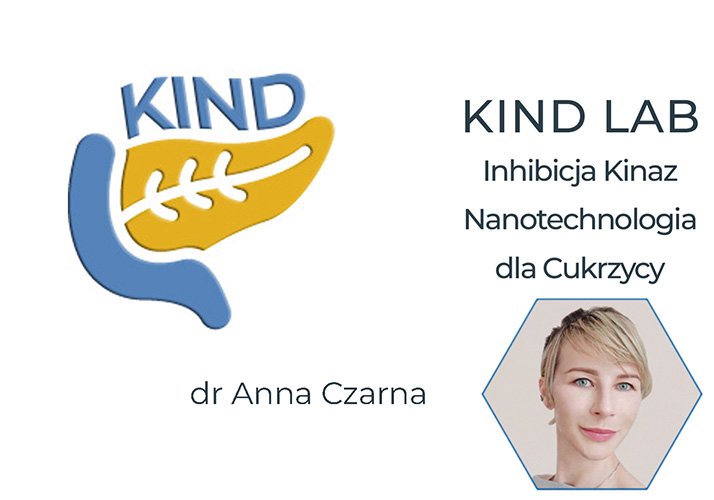
W naszej pracy opieramy się na wcześniejszych odkryciach w dziedzinie biologii strukturalnej białek, niskocząsteczkowych inhibitorach oraz ludzkich organoidach pochodzących z indukowanych pluripotencjalnych komórek macierzystych (iPSC) w celu poznania mechanizmów regeneracji frakcji komórek endokrynnych trzustki.
Over the past decades, we have seen significant changes in lifestyle (i.e., diet, physical activity, and microbial exposure) that contribute to the increasing prevalence of overweight and obesity worldwide. Consequently, this leads to numerous complications and severe conditions closely related to the metabolic imbalance that is diabetes, with cardiovascular disease, neurodegenerative disorders, liver steatosis and cancer. Currently, diabetes is divided into two main types: type 1 diabetes (T1D) and type 2 diabetes (T2D). Patients with T1D have a dramatic decrease in the number of beta cells (β-cells) in the pancreas, resulting in impaired insulin secretion and hyperglycemia. In the second disease model (T2D), insulin resistance causes a compensatory expansion of β-cells and a dangerous increase in plasma insulin levels. It is worth mentioning that most genes associated with T2D type regulate the mass and/or function of pancreatic secretory cells. Novel therapeutic approaches involve attempts to increase functional pancreatic secretory cell mass in place of burdensome insulin supplementation. Thus, diabetes is now a chronic disease requiring lifelong maintenance treatment. Natural and long-term regeneration of β-cell mass resulting in an actual cure of diabetes is an important milestone we all look forward to. Regenerative medicine is now entering the canon of scientific research and clinical practice. Our work builds on previous discoveries in protein structural biology, low molecular weight inhibitors, and human organoids derived from induced pluripotent stem cells (iPSCs) to understand the mechanisms of regeneration of pancreatic endocrine cell fractions. Research has shown that certain kinases, including the dual-specific tyrosine kinase DYRK1A and the β isoform of glycogen synthase kinase 3 (GSK3β) inhibit the proliferation and activity of pancreatic β cells. Given the complexity of the disease mechanism, it is unlikely to be caused by a single factor. Therefore, a thorough understanding of the molecular mechanisms of the components that regulate cellular processes is essential. The main indication of our research is the development of specific inhibitors to sustainably improve β-cell function. In our work we use state-of-the-art cell models for in vitro studies, including isolated human pancreatic islands as well as laboratory animal models (mice). Careful experimental planning supported by in-depth expertise, combined with extensive international and interdepartmental academic collaboration and support from the clinical sector, will significantly contribute to the smooth implementation of this project. Our proposed research strategy involves the acquisition of new tools in anti-diabetic therapy. The expected outcome of the projects will be the confirmation of the effectiveness of the developed low molecular weight inhibitors for growth stimulation of transplanted β-cells and maintenance of the population of these cells in the living organism. In the long term, the proposed strategies offer the vision of developing therapeutic models to cure diabetes completely (in place of current insulin supplementation), resulting in improved quality of life for millions of people and significant relief for health care systems worldwide.
- South China University of Technology
- Perpha Pharmaceuticals
- Helmholtz Zentrum Muenchen
- Institute for Medicinal Chemistry, Leibniz University, Hanover
- Arctic University of Norway
- Dana Farber Cancer Institute
- Warszawski Uniwersytet Medyczny
- Wydział Chemii UJ

